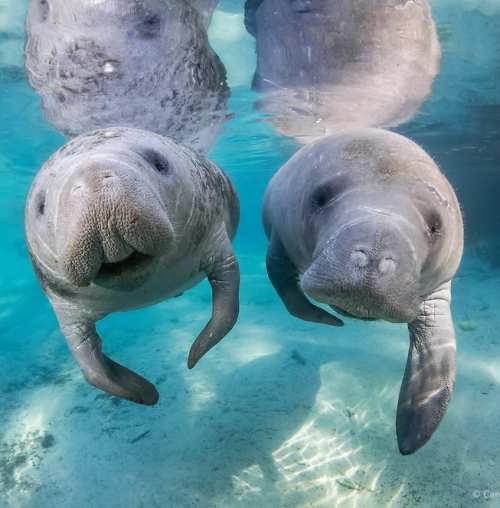Get ready to “shell-ebrate!” The Bailey-Matthews National Shell Museum and Aquarium of Sanibel-Captiva Island has partially reopened after extensive damage from Hurricane Ian.
“We suffered a great deal of damage. We had about five and half feet of flooding from the surge and destruction to the roof, floors and electrical. Our shells made it out OK, but we lost about 80% of our aquarium marine life and about 70% of our building. But we are really excited to have everyone coming back and seeing our renovations,” said the museum’s executive director, Sam Ankerson.
“From the water damage, we decided to gut the building. A lot of our shells here were original and from 1995. It was an opportunity to re-do it all and add onto our building and museum,” said Ankerson.
Today, the collection numbers over 500,000 specimens and over 130,000 lots. (A lot is a group of specimens, such as shells, of the same species that is collected at the same time in the same place.)
Doors opened for the first phase on Friday, March 1. Visitors to the museum can see a newly designed lobby, revamped aquarium galleries and gift shop.
The second phase will open in a few months. It will feature renovations to the top floor, including the popular Great Hall of Shells, auditoriums and specialty exhibition galleries.
“We plan on being fully re-done and expanded some- time this summer. We are reconstructing the upper shell floor. We are planning on tripling the number of shells to about 4,000 on display and adding to the classes,” said Ankerson.
“We will have about nine aquarium galleries open on the first floor for visitors to explore with two large touch pools. They are interactive and have about 50 different species of sea life including the fish and animals that live in the shells you find on the beach.”
The aquariums will house a robust mix of mollusk, corals, clams and Queen Conch.
The touch pools show off marine life from both local warm waters and Pacific cold waters.
“They will have two totally different characteristics and behaviors. You will see some familiar ones and then other non-locals,” added Ankerson.
The National Shell Museum and Aquarium brought in a new two-spot octopus, which lives in the Pacific Ocean. The museum is also preparing a tank for a giant Pacific octopus.
“The giant octopus is the largest in the world. The two-spot octopi we have here are very playful and active,” joked Ankerson.
Even after the hurricane, the museum offered educational lectures, fieldwork, classes, research and K-12 programs. Many times, these programs happened in other locations or online. Since the building has partially reopened, visitors can join in the educational opportunities. These include daily keeper chats, touch pool talks and a new mobile activity cart. The cart will help people identify shells found on the beach. Each of these programs is included in the cost of admission.
Ankerson said, “some new fun things we have… include in-depth facts of the aquatic animals and shells. We have videos on display that cover the contexts of the biology, ecosystems styles and conservations.”
The Bailey-Matthews National Shell Museum and Aquarium is proud to welcome back its original staff.
Four days after Hurricane Ian, the Bailey Matthews National Shell Museum and Aquarium team discovered most of the aquatic equipment was ruined. That included items like filters, pumps, heat exchangers and sanitary gear. The crew improvised, creating their own salt water to properly care for new arriving animals, ensuring sustainable environments.
“We had to size down after the storm. We hired a few new members, but everyone from our admissions and guides are previous staff members,” add Ankerson.
The Bailey-Matthews National Shell Museum and Aquarium hosted a ribbon cutting with the Chamber of Commerce and officials said all sales and proceeds from the museum’s gift shop will be put toward supporting the rebuilding efforts and revival.
The Sanibel Shell Museum first launched in 1984 with a $10,000 bequest from local shell collector Charlene Mc- Murphy and her husband Rolland. That donation began the Sanibel-Captiva Shell Club, which evolved into The Shell Museum and Research Foundation Inc., a nonprofit origination. In 1989, three brothers deeded eight acres of wetland on Sanibel Captiva Road to the museum. Construction took a few years, but the museum opened to the public in June 1995.
“We are really excited to be opening and fully open soon for locals and tourist. It is one of the landmarks here on the island along with a few other neighboring nature nonprofits. Coming in and supporting us, along with accepting donations, is bigger than ever for everyone here on Sanibel. It is what helps keep our conservation healthy,” said Ankerson. ¦
In the KNOW
Bailey-Matthews National Shell Museum and Aquarium reopens in phases
· Where: 307 Sanibel Captiva Road, Sanibel
· When: Opened March 1. Hours are Thursday through Saturday from 10 a.m. to 5 p.m.
· Price: $10 for adults, $5 for children 5-17, free for children under 5 and active military
· Contact: 239-395-2233 or info@shellmuseum.org; www.shellmuseum.org/
· Donations: www.shellmuseum.org/ donate

